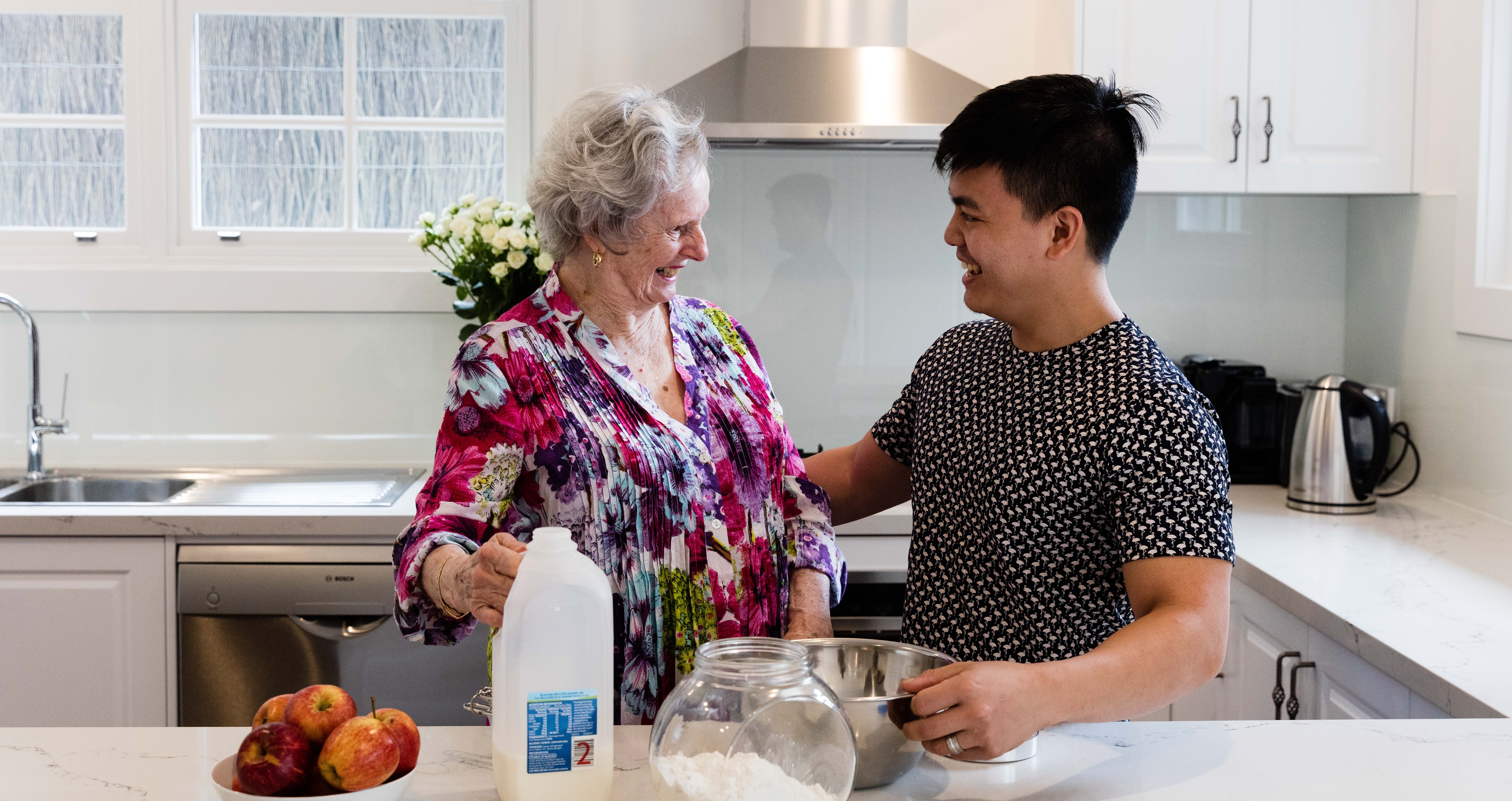Dementia is a condition most commonly associated with older Australians. However, some people first experience dementia symptoms in their 30s, 40s or 50s. This is known as younger onset dementia, and it can certainly be a challenging diagnosis to receive.
Most likely, you’ve planned a good portion of your future in terms of career, family, and other goals. Imagine you’d planned a trip to Paris with your partner, done all the research and booked everything. You get off the plane, and someone says, “Welcome to Holland”. All your research and planning was for a different location, so it’s natural to feel exhausted, angry and confused with your situation.
A younger onset dementia diagnosis is like this, but a lot more personal and serious. Your life was planned, and now you need to reassess and make a new plan. In this article, we’ll give you some helpful tips to show that you don’t need to suffer through the diagnosis. With early planning, you can still live a great life – just one that’s different to your original plan.
Planning for the future
This article aims to provide you with some practical ways to plan for life ahead with younger onset dementia. However, it’s important to mention two crucial aspects of life planning that you’ll need to be aware of.
Unfortunately, dementia is irreversible, meaning you will experience a gradual cognitive decline. This can affect your decision-making and ability to communicate your wishes. As such, you should address your financial and legal matters early.
Consider how you want your finances to be managed, such as insurance, superannuation funds, mortgages, etc. You may like to create or update your will and even appoint a substitute decision-maker.
In addition, you can also outline your wishes for future medical care, such as when to consider alternative living arrangements. These are heavy matters to deal with after diagnosis, but acting early gives you a say in future financial decisions and medical treatment. It can also ease the burden on family members if they clearly understand your wishes.
Discuss options with doctors and family members
Talking about your diagnosis with the right people is vital. Firstly, you should consult with medical professionals and include close family members in those discussions. This is where you can all learn about how to prepare, what to expect, and how to manage symptoms.
Secondly, it’s important to keep communicating with those closest to you. Talking is important whether it’s people you work with, friends, extended family members or anybody else you deal with regularly. Let them know what you’re experiencing and what you need. Communication is also beneficial for keeping your mind active.
Prepare your home
Even in the early stages of dementia, you can start preparing your home for some of the challenges that lie ahead. Here are some quick tips on making your home safer and easier as your condition progresses.
- Display personal items like photos to prompt memories
- Keep regularly used items easily accessible and visible
- Ensure good lighting
- Label items if necessary
- Keep common things together
- Consider assistive or mobility technology if required
- Upgrade your smoke alarms
- Remove trip hazards
These are just a few ideas, but as you learn more about your condition, try to modify your surroundings to make life easier.
Stay connected to friends and family
Keeping in touch with your social circle is important. People living with dementia often withdraw, but maintaining connections is extremely beneficial. Social activities help considerably with your mental health, reduce feelings of isolation, and also keep your mind and body active. It’s also beneficial for you and your support partner to lean on your support network when and if you need it in order to reduce stress and carer fatigue.
Exercise your mind and body
Maintaining physical health is always important. While your physical capabilities may change over time, you should plan to exercise as much as you’re able. Exercise is great for all aspects of health and well-being.
Also, don’t forget to use your mind wherever possible. Try to learn something new, continue reading, and even use puzzles and games to keep your mind active.
Maintain a healthy diet
Most doctors will recommend maintaining a healthy diet for all aspects of life. But for those living with dementia, it’s even more important. Eating well improves your sleep, which in turn allows you to be more active and alert the following day.
Need support with younger onset dementia?
Here at Group Homes Australia, we offer support services for people with dementia and their families. A diagnosis of younger onset dementia is never easy, but with the right support, you can learn to live well with your diagnosis. Contact our team today to find out how we can help.






0 Comments